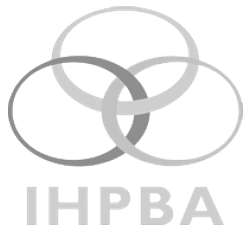Frequently Asked Question (FAQ)

What is PancreasGroup.org?
- PancreasGroup.org is a collaborative of international surgeons to study the outcomes of pancreatic surgery.
- The goal of PancreasGroup.org is to improve the practice of pancreatic surgery by sharing of research and innovation.
- Our first project is the "PancreasGroup.org Snapshot" clinical audit of outcomes after pancreatic surgery, a novel, pragmatic and collaborative approach to surgical outcomes research.
What is the “Snapshot study design”?
- “Snapshot” research is a novel multicentre study method which is particularly suited to investigate a common condition or treatment.
- These observational audits or studies produce a large amount of data that can be collected in a short period of time, while the workload for each participating hospital remains limited.
- Such projects include the GlobalSurg and ISOS studies that published in high impact journals.
Why participate?
- Provide a verified record of true morbidity and mortality in consecutive unselected patients.
- Help identify relevant, modifiable risk factors for outcome after pancreatic surgery.
- Become part of a growing global surgical research and audit network.
- Obtain PubMed citable co-authorship and access the raw data for future studies.
Who can participate?
- Any surgeon performing pancreatic surgery is eligible and welcome to participate in PancreasGroup.org.
- There are no minimum patient numbers per surgeon or per centre.
- Each participant may form a team of 3 members in total.
- Each team can include doctors or health care professionals of any grade
- Multiple team in the same institution allowed. We encourage an account with data collection per senior surgeon rather than per hospital or department.
When is the PancreasGroup.org study time period?
- There will be 3 months of prospective consecutive patient enrolment and 3 months follow up within the 12-month frame of January to December 2021.
- The participants may choose which trimester would be most convenient for them during the year 2021.
- If the last enrolled patient is on the 31st of December, the patient should be followed up for an additional of 3 months (i.e. 31 March 2022).
Which patients should we include in the study?
- Every adult patient aged 18 years or older who undergoes pancreatic surgery during the 3-month enrolment period of 2021.
- All indications are included:
- Open, laparoscopic or robotic.
- Elective or emergency.
- Partial or total pancreatectomies.
- Pancreatic tumour enucleations.
- Procedures with concomitant vascular or other organ resections.
- Pancreatic duct drainage procedures (e.g. Frey, Puestow, or Beger)
- Adults 18 years of age or older.
Which patients should we exclude from the study?
- Pancreas or islet cell transplantation.
- Transcutaneous or transgastric imaging-guided ablation (e.g. RFA) or electroporation (e.g. NanoKnife).
- Endoscopic (e.g. ERCP, stent or lithotripsy) procedures.
- Endoscopic transgastric and surgical necrosectomies excluded.
- Patients less than 18 years of age excluded.
Do we exclude patients who undergo emergency pancreatic surgery?
- No. Emergency primary pancreatic surgery (e.g. necrosectomy) should be excluded.
How can I get involved?
- Form a team of up to 3 people per surgical team to collect data and obtain appropriate approvals.
- It is up to the local primary investigator/collaborator to decide whom to include in their team of 3
- Each team may be comprised of a senior surgeon together with additional 2 medical students, residents, senior surgeons, or nurses.
- If your department has multiple consultants (attendings, chairs, senior surgeons) performing pancreatic surgery, they may register separately to form multiple teams of 3 collaborators.
- Each team will require to submit consecutive cases over a period or 3 months of your choice during 2021 to qualify for authorship. Alternatively, each team within the same institution may submit 3 month of consecutive cases during different periods within 2021.
- Register your participation at https://pancreasgroup.org/register including the details of your 2 additional colleagues that will form your local team.
- Obtain necessary local approvals if required. Note that our NHS Audit Committee has approved this project as an audit.
- After submitting your registration form, we will review the information and provide you with an account for the PancreasGroup.org platform within 48 hours upon receival.
How should data be collected?
- We strongly recommend to first extract and record the data for each case on our paper Case Report Form (CRF) version and then submit them online using our electronic CRF. This will be very useful to record all data prospectively and submit them only when all mandatory data are available (e.g. 90-day morbidity and mortality).
- The paper and electronic CRFs are available at: https://PancreasGroup.org/CRF
- The electronic CRF was specially designed to support the online data collection of the PancreasGroup.org study. This CRF is an online data collection form where you can submit your cases.
- Note that all field names (e.g. “Age”) followed by an asterisk (*) are mandatory for case submissions. If you miss to fill out a mandatory field, the platform will point out which one it is.
- There are some fields that may not be applicable or data not available (e.g. Ca 19-9). In such cases, please leave them blank.
- Links to classifications, definitions, online lab value converters and other calculators are available in the PancreasGroup.org platform after you login to the website.
- The following link provides detailed information on how to use the PancreasGroup.org platform and the electronic CRF for submitting cases: https://PancreasGroup.org/instructions
- The PancreasGroup.org platform was designed to adapt to all different screen sizes, browsers and devices currently available.
- You may use your desktop computer, laptop, tablet or even smartphone to navigate the website, read the protocol or even submit cases through the electronic CRF.
- Note that the “Case number” in the CRF for each case should be a unique ID without including any patient identifier such as the hospital number, initials, year of birth or other such combinations. Please keep a separate list of anonymized case numbers linking to the patient hospital number somewhere safe at your institution. This will help you identify patients in the CRF for further editing if needed.
Will my work be recognised?
- Yes. All PancreasGroup.org members, including participants, country leaders, management and scientific committee members who take part in the study will be publicly listed on the website.
- All PancreasGroup.org publications will be published on behalf of the PancreasGroup.org Collaborative which means all PancreasGroup.org members can list these in their curriculum vitae.
- All PancreasGroup.org members will obtain PubMed citable co-authorship
Who owns the data?
- The study Primary Investigators will act as the custodians of the data.
- The data however belong to all collaborators.
- The scientific and management committees together will decide after the publication of the main report about requests regarding secondary analysis and will consider all such requests based on quality and the validity of the proposed project and decide by majority decision.
How are the data protected?
- All data collected, processed and stored for the purpose of the project will remain confidential and comply with Good Clinical Practice for research (GCP) guidelines and the principles of the Data Protection Act 1998 (UK).
- Data submitted are anonymised prior to submission to the PancreasGroup.org study management group
- Access to the data entry system will be protected by username and password during the registration process for individual local investigators.
- All electronic data transfer between participating centres and the co-ordinating centres will be encrypted using SSL/TLS protocol (HTTPS).
- The PancreasGroup.org platform will be protected by additional web security software that monitors, identified and fixes threats, prevents attacks, accelerates website performance and meets international compliance standards.
How will you ensure the validity of the submitted data?
- An audit of the consecutivity, intent-to-treat and completeness of data entered will be performed by random selection of at least 30% of the contributing surgeons.
- An auditor of PancreasGroup.org will be assigned to audit fellow surgeons of PancreasGroup.org to perform a validation of among others the number of deaths and of the death dates.
- Auditors will be acknowledged at PancreasGroup.org and in the publications.
Do we need to submit the protocol to our local institution or regional ethics committee?
- Each country, state or region may have differing regulations for gaining ethics permission.
- The PancreasGroup.org International Pancreatic Surgery Outcomes Study is an observational study without affecting the patient management.
- The raw data collection is fully anonymized without containing any patient identifiers.
- In many countries, such as in the UK, this study is considered as an audit, without necessitating a formal ethics approval.
- The local investigators should seek advice from their own Ethics Committee or Institutional Review Board.
- If your Ethics Committee requires you to provide patient information and obtained informed consent, you will be able to download these template documents from our website (instructions page).
What is the role of the country leader?
- Country leaders recruit and co-ordinate collaborators in their own country or region.
- The may provide additional scientific and administrative support to the local collaborators.
- Local collaborators will also obtain citable co-authorship, accreditation for leadership and access to the raw data for future studies.
- To become a country leader, register your participation and indicate in the form that you would like to become a country leader: https://PancreasGroup.org/register. Alternatively you may email us at office@pancreasgroup.org
How are surgical complications defined and graded in this study?
- Postoperative surgical complications are defined as any deviation from the normal postoperative course and their severity is graded according to the way they are treated (according to the Clavien-Dindo Classification of surgical complications). For more information, please visit the official website: https://www.assessurgery.com
- Pancreatic specific complications are also captured by the ISGPS classifications. For more information, please follow the links available at the platform after you have logged in.
- Our detailed illustrated instructions with examples are available at: https://PancreasGroup.org/sites/default/files/Instructions_PancreasGroup.org_v1.pdf

The PancreasGroup.org Team
 Back to the Instructions page
Back to the Instructions page




